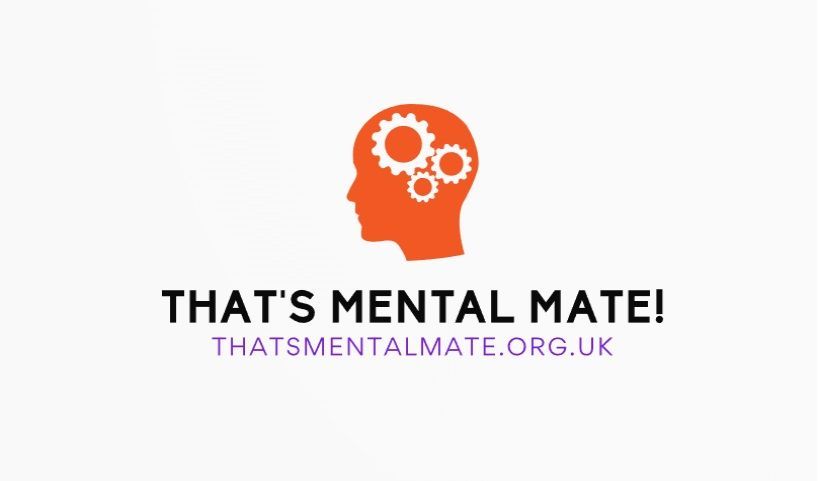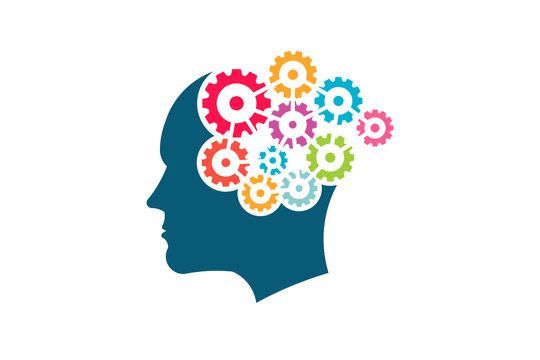OCD
(Obsessive Compulsive Disorder)
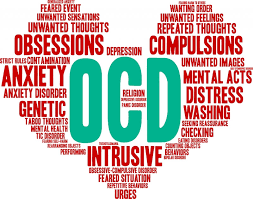
What is OCD?
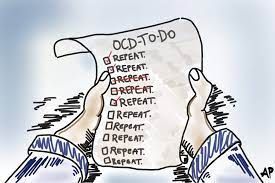
Obsessive compulsive disorder (OCD) is a mental health condition where a person has obsessive thoughts and compulsive behaviours.
OCD can affect men, women and children. People can start having symptoms from as early as 6 years old, but it often begins around puberty and early adulthood.
OCD can be distressing and significantly interfere with your life, but treatment can help you keep it under control.
It's not clear what causes OCD. A number of different factors may play a part, including:
Family history
You're more likely to develop OCD if a family member has it. It may be learned behaviour, or possibly because of your genes.
Differences in the brain
Some people with OCD have areas of unusually high activity in their brain or low levels of a chemical called serotonin.
Life events
OCD may be more common in people who have been bullied, abused or neglected, and it sometimes starts after an important life event, such as childbirth or a bereavement.
Personality
Neat, meticulous and methodical people with high personal standards may be more likely to develop OCD, also people who are generally quite anxious or have a very strong sense of responsibility for themselves and others."
Taken from www.nhs.uk
What are the symptoms of OCD?
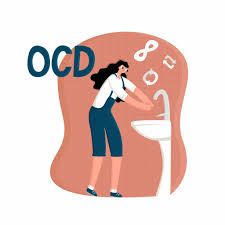
"If you have OCD, you'll usually experience frequent obsessive thoughts and compulsive behaviours.
An obsession is an unwanted and unpleasant thought, image or urge that repeatedly enters your mind, causing feelings of anxiety, disgust or unease.
A compulsion is a repetitive behaviour or mental act that you feel you need to do to temporarily relieve the unpleasant feelings brought on by the obsessive thought.
For example, someone with an obsessive fear of being burgled may feel they need to check all the windows and doors are locked several times before they can leave their house.
Women can sometimes have OCD during pregnancy or after their baby is born. Obsessions may include worrying about harming the baby or not sterilising feeding bottles properly. Compulsions could be things such as repeatedly checking the baby is breathing, and intrusive, unwanted and unpleasant thoughts, images or urges. These can cause anxiety and lead to repetitive behaviours.
If you keep getting these thoughts and they have an effect on your daily life, speak to your GP or health visitor. They can support you or refer you to a specialist mental health team if you need it."
Taken from www.nhs.uk
What are the treatments for OCD?
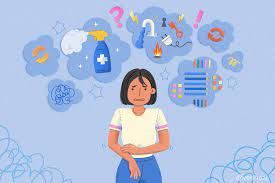
"There are some effective treatments for OCD that can help reduce the impact it has on your life.
The main treatments are:
Talking therapy
Usually cognitive behavioural therapy (CBT), which helps you face your fears and obsessive thoughts without "putting them right" through compulsions.
Medication
Usually a type of antidepressant medicine called selective serotonin reuptake inhibitors (SSRIs), which can help by altering the balance of chemicals in your brain.
CBT will usually have an effect quite quickly. It can take up to 12 weeks before you notice the effects of treatment with SSRIs, but most people will eventually benefit.
If these treatments do not help, you may be offered:
- An alternative SSRI.
- A combination of an SSRI and CBT.
- An antidepressant called clomipramine
Some people may be referred to a specialist mental health service for further treatment."
Taken from www.nhs.uk
Support
OCD-UK

Around three quarters of a million people are thought to be living with severe, life impacting and debilitating Obsessive-Compulsive Disorder (OCD) here in the UK.
OCD — it's more than you think!
If you feel you might be affected by OCD you can find out about the problem and how OCD is diagnosed in this section.
Links for NHS treatment
If you live in England and are aged 18 or over, you can access NHS talking therapies services for anxiety and depression.
A GP can refer you, or you can refer yourself directly without a referral.
NHS talking therapies services offer:
- talking therapies, such as cognitive behavioural therapy (CBT), counselling, other therapies, and guided self-help
- help for common mental health problems, like anxiety and depression
The problems that talking therapies services can treat include:
- depression
- generalized anxiety
- social anxiety
- panic and agoraphobia
- other phobias
- obsessive-compulsive disorder (OCD)
- post-traumatic stress disorder (PTSD)
- irritable bowel syndrome (IBS)
- body dysmorphic disorder
You need to be registered with a GP to get talking therapies on the NHS.
To self-refer for Talking Therapies click here.
